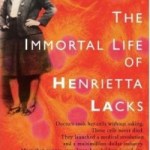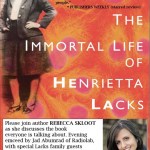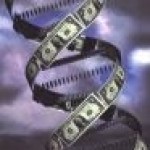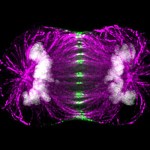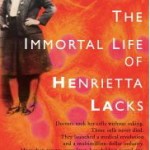Women and Science
DrugMonkey has a poll up asking for reader reports of the science career advice they have gotten firsthand. Here's the framing of the poll:
It boils down to what I see as traditional scientific career counselling to the effect that there is something wrong or inadvisable about staying in the same geographical location or University when a scientist move across the training stages. From undergrad to grad, grad to postdoc or postdoc to faculty.
First, if you've gotten advice on your scientific career, go respond to the poll. Then, come back and we'll chat.
Now, if one's goal is to become a…
In recent days, there have been discussions of conditions for postdoctoral fellows, and about the ways that these conditions might make it challenging to tackle the problem of the "leaky pipeline" for women in science.
For example, in comments at DrugMonkey's blog, bsci opines:
Most people start a postdoc between the age of 25 and 30. Even in the academic world, a substantial portion of people are married by that age and a smaller, but non-trivial, proportion have children. How these people are supported on post-doc stipends is definitely an issue even in the first years of postdochood.
When…
I'm posting answers to FAQs about my book, The Immortal Life of Henrietta Lacks, as an ongoing series on this blog. In my last FAQ post, I told the story of how I first learned about HeLa cells at sixteen. A related question I often get has to do with this one sentence in the book's prologue:
"I was a kid who'd failed freshman year at the regular public high
school because she never showed up. I'd transferred to an alternative
school that offered dream studies instead of biology, so I was taking
Defler's class for high-school credit, which meant that I was sitting
in a college…
I mentioned a while ago that I'll be posting answers to FAQs about my book, The Immortal Life of Henrietta Lacks, as an ongoing series on this blog.
I thought I'd start the FAQs with one of the most commonly asked questions: How did you learn about Henrietta and the HeLa cells, and why did they grab you the way they did? Here is the answer, which I also posted about over on Powells.com's book blog this last week as part of a little guest blogging stint:
I first learned about Henrietta Lacks in the late 80s, when I was 16 and sitting in a basic biology class at Portland Community College
(…
I mentioned a while ago that I'll be posting answers to FAQs about my book, The Immortal Life of Henrietta Lacks, as an ongoing series on this blog.
I thought I'd start the FAQs with one of the most commonly asked questions: How did you learn about Henrietta and the HeLa cells, and why did they grab you the way they did? Here is the answer, which I also posted about over on Powells.com's book blog this last week as part of a little guest blogging stint:
I first learned about Henrietta Lacks in the late 80s, when I was 16 and sitting in a basic biology class at Portland Community College
(…
Here are some of the thoughts and questions that stayed with me from this session. (Here are my tweets from the session and the session's wiki page.)
One of the things I found interesting about this session was that the session leaders' approach to the broad issue of promoting gender and ethnic diversity in science, engineering, technology, and M [mathematics here? I get the impression that sometimes the M in STEM is math and sometimes it's medicine, but I'm happy to set this taxonomic issue aside] was to look at particular initiatives, activities, or responses from smaller communities…
It's true that I recently returned from a fairly geeky conference, but I just found out about one happening practically in my backyard. And, given that I don't yet have any papers to grade, I figured I should check it out.
(Today is the last day to register without paying the late registration fee, in case that helps you make up your mind.)
From the web page:
She's Geeky's 5th unconference, the third in the Bay Area, is coming up the last weekend in January at the Computer History Museum [Map] in Mountain View. Register now to receive regular pricing.
Who is invited?
Are you a woman…
After ten long years, the serious countdown has begun for the publication of my book, The Immortal Life of Henrietta Lacks, which will be on sale nationwide exactly SEVEN DAYS from today. I've been posting about my impending book tour, and all the great coverage the book has been getting, on Twitter and Facebook, but thought I'd also post a bit of a press round up here, and an update, for those who (gasp) don't spend all of their time in those places.
If you don't know what my book is about: it tells the story of a poor black tobacco farmer whose cancer cells -- taken without her…
Are you in New York? Anywhere near New York? If so ... mark your calendars and come join us for the PUBLIC BOOK LAUNCH EVENT we've all been waiting for (well, at least we here at Culture Dish have been waiting for it ... plus a few other folks): In an evening emceed by Jad Abumrad of RADIOLAB, I'll be talking about my new book, The Immortal Life of Henrietta Lacks ... and rumor has it, some of Henrietta's family members will be there with me to answer your questions and SIGN YOUR BOOKS! Also, we will have live HeLa cells for people to see. So much excitement, we can…
Session description: We will introduce programs that attract wider audiences to science, math, and engineering at various institutions/education levels, programs that mentor students (high school, undergrad & grad students) in research and education excellence. How Social Media tools can be used to raise the profile of and build support networks for under-represented scientists and engineers.
The session was led by Anne Jefferson (@highyanne) with assistance from Lyndell Bade (@lyndellmbade), Evelyn Lynge, and Zuska. DNLee (@FeteSociety) was to have led the session with Anne but did not…
Recently, a bit of a kerfuffle has sprung up around the choice of entries included in The Oxford Book of Modern Science Writing, edited by Richard Dawkins. The book contains 83 examples of the "finest writing by scientists." However, DrHGG noted:
Of 83 texts Professor D has selected 3 written by women. That's about 3.6%. How hard could it be to find a handful more? Like 10%? It would still be a wiener fest.
She also notes that of those 3, one is even left out of the "Featured Writers" section, as it was co-written with her husband (who received all the credit).
Sheril brought this up on her…
Big week here at Culture Dish! The Immortal Life of Henrietta Lacks and its author (yours truly) were on the cover of Publishers Weekly (please note: THRILLED!). Inside that issue was a profile of me with some of book's backstory, a short excerpt from the book (longer excerpt coming soon in O, the Oprah Magazine), also a story I wrote about the crazy book tour I'm organizing (posted about previously here). But that was just the beginning of this week's HeLa developments. More about that after the jump, but first, a warning: given the fact that my book is about to be released and…
Calling all academics: If you'd like a free advanced copy of my book, The Immortal Life of Henrietta Lacks, get thee to Random House's academic blog and request a copy quick, while supplies last (which probably won't be long at the rate things are going). See below for more information on the book, and advanced praise. Added bonus: If you teach the book this spring, you can also get me to come speak at your school/in your classes as part of my book tour.
Here's Publishers Weekly on The Immortal Life of Henrietta Lacks:
Science journalist Skloot makes a remarkable debut with
this multilayered…
Some interesting news about the breast cancer patent lawsuit I wrote about for Slate's Double X Magazine a few months ago: A federal district court has just agreed to hear the case. When the lawsuit was first filed, many legal experts I talked to said they were sure the case would get thrown out of court for it's unusual approach, namely that it claims that the practice of patenting genes is unconstitutional See my story about the case here. Filings and other documents related to the case available here. And see below for the full press release about today's news:
Court…
Abel and Orac and Isis have recently called attention to the flak Amy Wallace had been getting for her recent article in WIRED Magazine, "An Epidemic of Fear: How Panicked Parents Skipping Shots Endangers Us All". The flak Wallace has gotten, as detailed in her Twitter feed (from which Abel constructed a compilation):
I've been called stupid, greedy, a whore, a prostitute, and a "fking lib." I've been called the author of "heinous tripe."
J.B. Handley, the founder of Generation Rescue, the anti-vaccine group that actress Jenny McCarthy helps promote, sent an essay title" "Paul Offit Rapes…
Via Twitter, PalMD wondered if I'd seen this brief item on the New York Times Idea of the Day blog.
Writing in The Philosophers' Magazine, Brooke Lewis says tallies of full-time faculty at top American and British colleges show women make up less than a fifth of philosophy departments in Britain and little more than that in the United States. This suggests "that gender representation is far less balanced in philosophy than it is in many other humanities subjects."
Indeed, on quick examination, the gender balance among faculty in philosophy departments looks an awful lot like the gender…
It's fitting that today -- the day after the 58th anniversary of Henrietta Lacks's death -- the Nobel Prize in medicine has been awarded to Elizabeth Blackburn, Carol Greider, and Jack Szostak for the discovery of how telomeres and the enzyme telomerase protect chromosomes from degrading over time. In the late eighties, a scientist at Yale used Henrietta's cells (aka HeLa, pictured left) to discover that human cancer cells contain telomerase, which regenerates their chromosomes and prevents them from aging and dying like normal cells. This is one of the reasons why Henrietta's cells…
Lots of excitement here at Culture Dish: The final cover for The Immortal Life of Henrietta Lacks has arrived (see left). And ... <drum roll> ... the the book's first pre-publication review has hit the press: In the issue coming out this Monday, Publishers Weekly gives The Immortal Life a starred review, calling it, "a remarkable debut ... a rich, resonant tale of modern science, the wonders it can perform and how easily it can exploit society's most vulnerable people." (wOOt!) Full review here and here:
"Science journalist Skloot makes a remarkable debut with
this…
Dr. Isis offers advice to a reader who gets ogled by a professor.
Numerous commenters chime in with their own experiences of being ogled, groped, and otherwise harassed by professors, classmates, bosses, colleagues, and random guys.
Some of the men among Isis's commentariat say, are you kidding? You have to put up with this crap regularly? (I'm inclined to view this as a positive effect of this blog post: people have the opportunity to hear about something other people experience on a regular basis, something that they hadn't, for whatever reason, noticed themselves. More data give you a…
Earlier this week, the American Civil Liberties Union and several other groups filed suit against Myriad Genetics -- the company that holds the patent on the breast cancer gene. They're hoping to get the breast cancer gene patent revoked, but more than that, they're aiming to stop gene patenting all together.
Today, in my new column in Slate's Double X Magazine, I go into the story of the breast cancer gene and the impact the ACLU claims it's had on science and patient care (a hint: it's not good). I also look at the suit itself, the cases that have come before this one, and…
